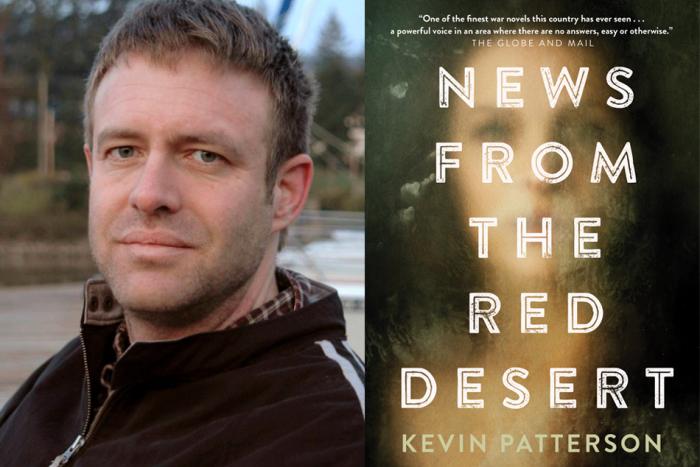It seems absurd now that she and I ever talked about baby names. But maybe that is what you do when you are in love and aren’t willing to admit it. She was leaving soon, taking a job on the other side of the country, and since we weren’t exactly together and for another hundred, sorry reasons, I wasn’t going with her. So we instead lay there in her bedroom on a cloudy May morning—that pale not quite spring light filling the space, my brown hand draped across the barely pink skin of her back—and doing with our bodies what we (or at least I) was not willing to do with our lives, we talked about what we might name a child if we ever had one.
I knew she would balk at it, but I told her what I had held buried in my chest for years: That, for a daughter, I liked the name Tasneen. Like so many Muslim girls’ names, it seemed elegant and dainty in its slipperiness. That first syllable that doesn’t quite exist in English, a softened “T” stopped mid-sound on its way to “th,” that then glides easily into “us,” and then the clean glinting sheen that accompanies words that end in “n.”
I also liked Tasneen because it could easily be shortened to Taz. Tasneen might carefully pour brightly hued chemicals from test tube to beaker or have people realize half an hour too late she had been making fun of them. But Taz—she might wear Doc Martens and fight racists while taking care her many facial piercings stayed perfectly in place, and even as I type this I am aware that this is the kind of thing a sitcom husband says while his improbably hot wife rolls her eyes in exasperation. In fact, that was just her reaction. But in that fantasy we carry around that our children’s destinies are somehow in our hands, I liked how all this superficial incongruousness held together in that coupling of both formal and nickname—of differing ideas of the feminine, of East and West, and why I, as a Sikh man, wanted a Muslim name for a girl who would never be conceived.
“No daughter of mine is ever going to be called Taz,” she said flatly, unware of this desire of mine to find in a pair of names a perfected split identity. But if it seems like I am trying to make her the unsympathetic pale-skinned villain it is only because her absence still lingers like a wound and not because it is actually true. I was trying to make things fit that simply wouldn’t—a child who would be two people at once, and two people who would inevitably part. Now, I don’t quite know what to call the feeling when you know something was beyond saving and had to end but you can’t seem to stop being haunted by the loss anyway.
*
My Punjabi parents were born in what is now Pakistan, before that country existed. That is how you say it. They are not quite from India, and not from Pakistan, because names connote specific things and there isn’t quite the right one for birthplaces whose valences have now shifted under the heaving tectonic plates of history.
Punjab was split in two in the Partition of 1947, a once multi-faith state now cleaved cleanly into Muslim and Hindu/Sikh halves. Muslims in East Punjab had to migrate West, while Sikh and Hindu families like mine went the other way, generations-long systems upended. My father’s family was on holiday in Masoori as Nehru made his famous “Tryst with Destiny” speech that August, and they never went home. This was not unusual. Decades on, the trauma still lingers, and with it resentment, bitterness, division. Amidst one of the largest migrations in human history, over a million people died in the communal violence that erupted—mobs of Sikhs, Muslims, and Hindus murdering at will, sending trains full of corpses down the tracks across the border, carriages of death transformed into the most macabre of warnings. Despite the fact that Punjabis on both sides of the border still have much in common culturally, decades later, the tension between nuclear powers has ossified into something too big and complex to simply undo.
Much of this history is invisible to my friends or partners, its subtlety and shading lost. But it is just this sort of invisibility that has given rise to my wish to don a mythical child, who will never arrive, with a Muslim name. It is my own futile gesture toward acknowledging something, putting in a name a desire for a reconciliation that won’t arrive in my lifetime.
I am of course hardly alone in my desire to give a child a resonant name. Many people I know carry a list around with them, yearning contained in a crumpled note tucked away in some corner of one’s brain. As my social group slipped surreptitiously into its childrearing years, baby names were added to pop culture and politics as topics of conversations as, late into the night, feelings got more honest and slurred words spilled out over wine. My white friends would chatter excitedly about the surprising return of names like Ava or Martha, or comment on the obvious quirky celebrity monikers. But it would also often feel like a cone of cultural exclusion would descend around them as they listed off the names they had been holding on to for years.
It is not that I didn’t understand the resonance of the entries on Most Popular lists hastily Googled on a phone. Having spent my whole life immersed in this culture, the return of Jackson and Dakota, Noah and Emma, or Isabella and Lucas all make sense to me. I understand the way these names resonate—evoking hippie parents who are deeply committed to yoga, or upwardly mobile professionals who vacation in Vietnam, or homebodies who have lived in the same town their whole lives.
Rather, what felt and still feels alien is the way in which a nostalgic return to the past seemed so easily in reach—that what was once thought of as a grandmother’s name can now be heard around groups of strollers in Roncesvalles or Park Slope. It was the way in which those of the majority culture could trace a coherent line between past and present, remaking the meaning of something old into something new while still maintaining the link between the two. I might be able to explain to a friend the various echoes of my grandmothers’ names—how Iqbal’s use by Muslims and Sikhs evokes a kind of prelapsarian harmony; or that I was once able to tell my ninety-something grandmother Sundar that she was, as her name meant, beautiful, and have her erupt in joy at this rare moment of communication—but it isn’t quite the same. Culture isn’t about disconnected parts, put together—it’s about how small things fit into bigger things. The resonance of a name, the echoes of decades past carried in a few words or a knowing look, the sense of a household immersed in the bustle and smells and sounds of a music-filled meal preparation—these aren’t things that translate easily, because they will only ever be orphaned parts of an experience, incomplete and half-told. Like too much in my life, the significance of Tasneen would remain partially obscured, forever in need of some extra layer of explanation.
I don’t always feel excluded from discussions about baby names, though. Last Christmas, we had our usual celebrations. On the evening of Christmas day, with the family with whom we always spend the holidays, we caught up on the year’s news over cheese and charcuterie in front of a fire. The languages switched at random as they always do, jumping from English to Hindi to Punjabi. The more the evening progressed, the lower the light fell until finally at ten or eleven, dinner arrived and the two bottles of good Italian red that had been deliberately set aside got splashed into a decanter, which we then proceeded to drain slowly over the next few hours. Whether a discovery or an invention, this, apparently, is how Sikhs celebrate Christmas, and it’s how it goes every year: sitting around an indulgent meal, talking loudly, continuing a practice that has existed for over three decades now, things only quieting down after we set a Christmas pudding alight after drowning it in brandy, another tradition that is now firmly ours.
This past year, a young couple was there, typically Canadian: immigrants, upwardly mobile. They were expecting, and as their first child fiddled with the paper hat from a Christmas cracker (another well-worn tradition), the chatter turned, of course, to baby names. The names floated were all, like Tasneen, delicate and pretty, and, as it turned out, also Muslim. Saisha, the soft sibilance of the name seeming at once elegant and regal, was the favoured one, but the usual debates occurred, including the standard joke about Punjabi names that all start in Raj or Jas or Nav and end in -jeet, or -winder, or -pal.
This at least made sense to me: a group of mostly Sikhs and a couple of Hindus talking Muslim baby names over Christmas dinner. Beyond the too obvious symbolism of it all, there were the threads of history spanning back across continents, connecting the generations in that dining room to the ones to come. In that sense, this was its own cone of exclusion, a clear, if circuitous sense of lineage present at that meal missing from other parts of my life.
Yet, there was in that room what both experiences shared, too. A collection of baby names is like a taxonomy of hope, a kind of catechism for future lives scattered over the horizon. Yes, those lists are about the dream of a child to come, but for so many they are about repairing some wound, retrieving what has been lost to the years. All the same, there were certain conversations I could have with friends or the love of my life, and certain ones with family, and somehow they never quite met in the same way, or arrived at the same point. There is a difference between the impulse to name a child after a flapper from the Twenties, or search however futilely for some moniker that will repair historical trauma. Journeys were taken—across newly developed borders, off West in search of a better life, or to a new city for the next phase of a career—and some things have been rent that now cannot quite be stitched back together. One can only ever point one’s gaze toward the future, and project into that unfinished space a hope—that some future child will come and weave in words the thing that will, finally, suture the wound shut. One is forever left with ghosts: a yearning for a mythical wholeness that has slipped irretrievably behind the veil of history. I’m sure there’s a word for this, but I can’t quite bring it to my mind.
*
The ex with whom I once talked about baby names is now long since a world away. She came home for Christmas a couple of years ago and asked me to move to be with her. I refused. I had absurd, naïve ideas about the way my life was supposed to go, about who I was supposed to be before I dove into something real. We remained friendly for a while, but ultimately nothing good could emerge from such scorched earth. Eventually, simple friendship proved impossible too, in part because, never one to wallow, she moved on while, even after years, I simply couldn’t manage to. Sometimes our mistakes and flaws as humans build on one another, a tangled ball of poor decisions cascading down the uneven terrain of intimately knowing another person, until they calcify at the foot of the hill, concrete knots of a failed relationship impossible to undo.
The shards of a lost thing were once a window onto a future that never came. Over a decade ago, we lived together in a small room in Western Ireland, working at a tourist spot in the country. We’d have days off together, and the night before them I would marvel at how excited I’d be that I’d get to spend the next day with her despite the fact that we were barely ever apart. We’d often pass them by walking the bleak Connemara countryside, only to return home to tea in front of the TV.
Far from home, we used to like to sustain ourselves on visions of an imagined life together—those British property shows about elderly couples who retire into a straw bale house in the country, images of our declining years spent together, or, many years later, talk of what to name a baby. It was visions like that which maintained the fantasy while it lasted, a dream based on the hopes that I could be a better person, that circumstances were different, and that when things were fixed, a yet-unnamed child might be a sign of how they were. Yes, Tasneen was a naïve gesture to some mythical, complete identity, but it was also an abstract ideal of a compromise that I was unwilling to make here in real life.
But then, I have always had a thing for too-on-the-nose metaphorical gestures. A lifetime ago, I started wearing a Sikh karha, a bangle that is part of the five symbols of the religion, along with an eyebrow ring. I called it my Two Pieces of Steel—the eastern and western meeting in some mythic harmony. Eventually, my body rejected the eyebrow ring. I still wear a karha. It is tempting to try to say something about how cultures cannot meet—that systems of understanding simply do not meld neatly, and will remain forever cleaved, unable to be put back together—but that’s the wrong lesson. Sometimes bodies simply are what they are, and you have to take them as they come.
She also had name in mind for a girl, but it is not mine to tell. You can’t put the past back together or build a future only with metaphors or pretty words. Names, metal draped on the body, pieces of writing meant to make sense of a thing—like that of a baby who would never arrive, they are just gestures, scaffolding around a wordless feeling, now lost: of a lifetime spent waking up next to someone, the soft weight and warmth of their body against you, a reassuring pressure—and maybe a crib in the corner of the room. Perhaps that baby wouldn’t have the perfect name. You might be there, though, in that pregnant, grey light of the spring, whispering in hushed tones, careful not to wake her, trying to steal a few more moments of rest. It might be a cold day, and you might not want to leave bed. On such mornings, though, when you are immersed in something, there is reason to get up. You have the whole day ahead of you.






